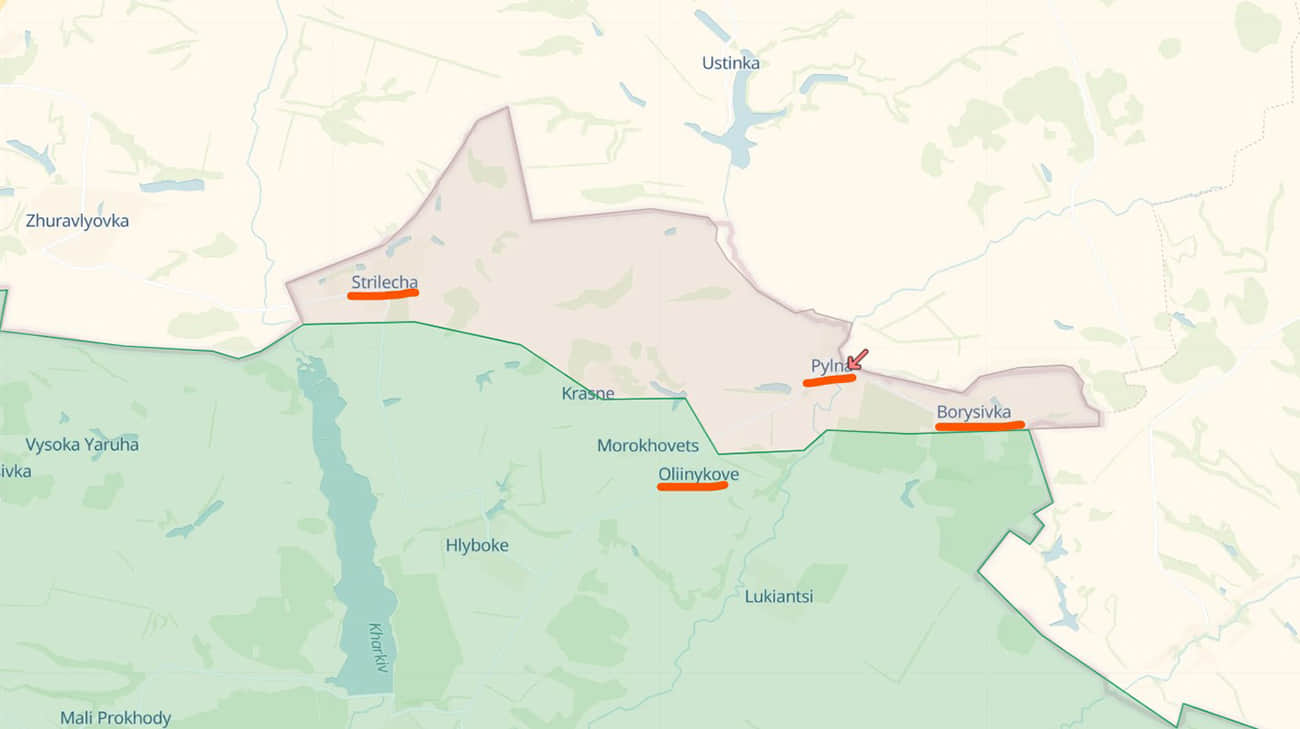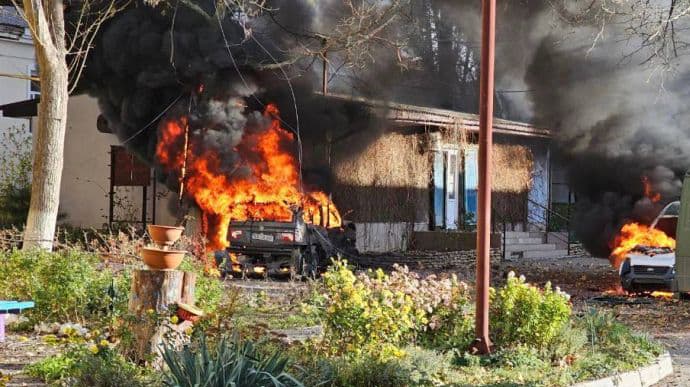Harris zeroes in on Asian American voters in campaign's final stretch
Vice President Harris is zeroing in on specific communities of Asian American voters in key swing states as she looks to turn out every voter she can in what is expected to be an incredibly close White House race. There are more than 1.5 million Asian Americans and Pacific Islanders (AAPI) in the election’s swing...

Vice President Harris is zeroing in on specific communities of Asian American voters in key swing states as she looks to turn out every voter she can in what is expected to be an incredibly close White House race.
There are more than 1.5 million Asian Americans and Pacific Islanders (AAPI) in the election’s swing states, and in some, such as Nevada, they make up more than 10 percent of the electorate.
The campaign has already rolled out eight ads specific to the community in these swing states, and it has also been blanketing more than 70 ethnic media outlets and sending mailers to AAPI voters.
In Wisconsin, the Harris campaign is making an effort to drive out Hmong American voters. It is also reaching out to Filipino Americans in Nevada, Korean Americans in Georgia, and Indian American and Chinese American voters — the two groups that make up the largest share of AAPI voters in most states — in all swing states.
“We are working to earn every single vote,” Harris AAPI spokesperson Andrew Peng wrote to The Hill. “Our campaign has invested historic sums into paid media, hired and deployed dedicated Asian American outreach staff nationally and across the battlegrounds, and we are hosting frequent voter engagement events and activities to mobilize Asian American voters.”
Leaders from those groups say this is one of the first presidential campaigns to make meaningful outreach to specific communities, and they say it is making a difference. Polling shows that AAPI voters back Harris over Trump by a 2-to-1 margin.
“It’s the largest and earliest investment ever in outreach,” Filipinos for Harris founder Melissa Ramoso, a city council member in California, told The Hill. “The pathway to 270 will be won or lost on the margins, and Filipino Americans in Nevada have been the margin of victory.”
In Nevada, the campaign has rolled out advertisements targeting the Filipino American community, including billboards and trucks around the Pinoy Pride festival last month.
October is Filipino American Heritage Month. In the run-up to the election, the campaign is also rolling out a branded truck in Las Vegas, which reads, “When we vote, we win.” The truck will distribute ube cookies, a Filipino dessert, from Purple Potato Bakery, encouraging people to vote.
In the run-up to the festival, vice presidential candidate Minnesota Gov. Tim Walz (D) and his wife, Gwen, also visited Nevada's Filipino American community. He also visited Xiao Long Dumplings to celebrate the Mid-Autumn Festival, a Chinese holiday.
President Biden won Nevada by a little more than 45,000 votes in 2020, and the current The Hill/Decision Desk HQ polling average shows former President Trump leading Harris by 0.2 percentage points.
According to David Chu, San Francisco’s city attorney and one of the founders of Asian Men for Harris, Asian American volunteers from California have also mobilized into the Silver State. Chu has also organized busloads of volunteers from California to Nevada to mobilize Asian American voters.
In Wisconsin, Harris is targeting Hmong American voters. There are more than 58,000 members of the ethnic group in the state, and estimates suggest more than 35,000 are eligible voters. Biden won the state by 22,000 votes in 2020, and historically, the community has not had the highest voter turnout.
“It's definitely a different energy this time around, better than 2020. Especially with Harris ... on a ticket now, really boosts our energy and to get out there and vote," said Thay Yang, who runs a Hmong TV station. "We’re the margin of victory."
“There’s been very active outreach from the Harris-Walz campaign, much more than I have seen from the Trump campaign,” Yang added.
In a written comment from the Trump campaign, spokesperson Steven Cheung dismissed the claim and provided the same comment from previous stories about Trump's outreach to AAPI voters.
“There has been no bigger advocate for the AAPI community than President Trump, as he created an environment where diversity, equal opportunity, and prosperity were afforded to everybody. Anyone who says otherwise is disgustingly using the AAPI community to play political games for their own benefit,” Cheung wrote.
According to Yang, the active effort to engage Hmong voters in and around Milwaukee has “meant a lot to the community,” which has not always been engaged with by political parties.
The Harris campaign also attacked Trump’s efforts in Wisconsin, with a spokesperson writing to The Hill that “no one on the Republican side of the race has reached out to” Hmong Americans.
While the Harris-Walz campaign is mobilizing Hmong Americans voters in Wisconsin, Dr. Gracie Galloway, a longtime North Carolina AAPI organizer, raised concerns about efforts in her state to drive out the community.
“I'm not quite sure just how much they’ve really reached out Hmongs in North Carolina, and I'm not clear as to whether it's because of because they launched Hmongs for Harris just shortly before Helene, so I'm not sure that impacted it or not,” Galloway said. “All I can say is that right now, there really is not that much outreach to them.”
According to Peng, the Harris campaign launched a phone bank for Hmong Americans in the Tar Heel State this week and is actively working to engage the community.
While Galloway said there had been strong outreach to other Asian American groups, she also said Muslims in the AAPI community have also been left “unsatisfied” with the campaign’s efforts to reach out to Muslim and Arab American voters in the state.
However, Galloway added that the campaign and organizers in the state have been working to reach Southeast Asian voters, including Vietnamese, Cambodian, Indonesian and Malaysian voters, many of whom have not seen much outreach from political campaigns before. According to Galloway, the campaign has identified at least 5,000 new voters from the community that they are working to mobilize.
“That's a new group of people that we are targeting, and we're getting it to the polls,” Galloway said. “That's the group that, we're now bringing them in to vote.”
In Georgia, the Harris campaign, as well as groups such as Asian Americans Advancing Justice and the AAPI Victory Fund, are also dedicating resources to mobilizing voters, including in the Atlanta suburbs of Gwinnett County, where AAPI voters make up close to 15 percent of the electorate.
More than 400 AAPI community members attended the Harris-Walz canvass launch, and the campaign and AAPI Victory Fund are running canvasses and phone banks, including in various Asian American languages.
The campaign and local Korean American leaders, including Georgia State House Democratic Whip Sam Park, are also working to reach out to the Korean American community, which has close to 75,000 eligible voters in the state; recent polling has shown a dip in support for Harris among compared to other AAPI groups.
“There's certainly, you know, increased efforts to reach outdoors, by phone, by text, by in-language media outreach, so we're continuing to do everything we can to turn out the community,” Park said.
“We've seen in-language ads beginning to hit in Vietnamese and in Korean,” he added. “That's always, I think, an important outreach mechanism, because it demonstrates cultural competency, and again, the importance of a community's vote, especially in a tight election where we saw Asian Americans be a part of a coalition that helped Biden win in 2020. Now, do I think the dynamics this election cycle are different compared to 2020? Absolutely. But do I think a majority coalition exists in Georgia for Kamala? Absolutely.”
Finally, in Arizona, a growing Indian American community has also been working to mobilize voters for Harris — who is half Indian — and Amish Shah, who is running in Arizona’s 1st Congressional District and would be the country's first Jain congressman. There are more than 70,000 Indian Americans in Arizona.
According to Simi Singh, the lead for South Asians for Harris in the state, engagement within the community has “skyrocketed” during this presidential cycle. Her group will also be hosting the first South Asian-specific phone bank Tuesday.
“The momentum has just picked up. I'm seeing it on the phone — like, I'm seeing it in the WhatsApp chats ... and I'm also seeing it in my neighborhood,” she said.


